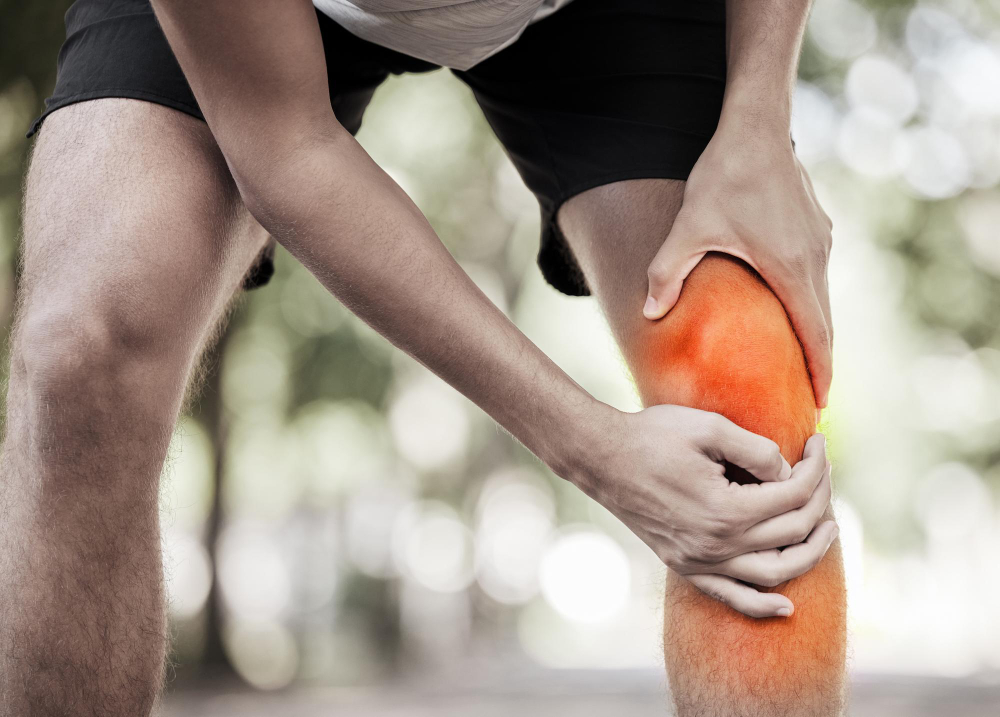The Surprising Culprits Behind Your Knee Pain Beyond The Obvious

Knee pain is an annoyance that many of us are all too familiar with and often jump to the conclusion of overuse or injury. However, more times than we realize, knee discomfort can stem from lesser-known triggers. In the elaborate ballet of our movement, the anatomy of the knee is particularly complex, which means the potential for pain is as varied as it is vast. In this article, we take a deep-dive into the unsuspected origins of knee pain, uncovering causes that might not immediately spring to mind.
Identifying the Root Cause: Physical Therapy's Perspective
If you're based in Winter Springs, FL, and looking for answers to your knee pain, considering the breadth of potential causes is of paramount importance. Physical Therapy, particularly, can be a valuable resource in diagnosing and treating the various triggers for knee discomfort. They can analyze your gait, muscle strength, and flexibility, using their expertise to trace the source of the pain back to its origin.
The Relationship Between Weakness and Pain
Often, knee pain can be a manifestation of wider systemic issues, such as muscle weakness or imbalance between muscle groups. Weak quadriceps, for instance, can place undue stress on the knee, leading to degradation and pain over time. Physical therapists are skilled in prescribing exercises that target these specific weaknesses, offering long-term relief.
Assessing Flexibility and Range of Motion
Restricted flexibility and poor range of motion can also cause knee pain. By working with a physical therapist, individuals can improve joint mobility and musculature to alleviate discomfort. Physical therapy, therefore, becomes less about just treating the direct site of pain and more about establishing a comprehensive biomechanical harmony across the body.
Overcompensating and Its Implications
An often overlooked issue is overcompensation. Injuring one leg could lead to the other leg taking on more work, which can lead to pain and dysfunction over time. Physical therapists are adept at identifying these imbalances and working to correct them, helping patients to distribute their weight and movement more equitably.
Uncommon Instigators of Knee Pain
With the groundwork laid by physical therapy, it's time to explore the unexpected causes of knee pain. Here, we'll highlight some of the less-discussed scenarios that could be at the forefront of your discomfort, challenging common misconceptions about knee pain.
The Role of Footwear in Joint Health
We often underestimate the impact of our footwear on our physical well-being. Shoes that are too flat, too worn, or simply the wrong size can cause misalignment and instability, leading to chronic knee pain. Proper arch support and a balanced sole can do wonders in mitigating this issue.
The Culprit of Your Core
Strengthening the core muscles stabilizes the entire body, a factor that many may not initially connect to knee pain. However, a weak core can lead to poor posture and a subsequent misalignment of the entire body, including the knees. Engaging in core-focused exercises can significantly reduce pressure on these joints.
Nutritional Neglect
Our diet and nutrition play a significant role in our overall health and can impact joint integrity. Inflammatory foods, such as those high in refined sugars and trans fats, can exacerbate conditions like arthritis, leading to knee pain. Conversely, a diet rich in anti-inflammatory foods may provide relief for many individuals.
Environmental Factors
Environmental influences, such as temperature and humidity, have been associated with changes in joint pain levels. While the precise mechanisms are complex and not entirely understood, it's clear that some individuals report increased knee discomfort in colder, damper conditions. This points to a potential vairety of pain and discomfort being environmental rather than internal.
Treatment and Proactive Measures
Physical therapy may form the backbone of your approach to resolving knee pain, but the onus is also on the individual to be proactive in their treatment and prevention efforts. Taking care to wear appropriate footwear, maintaining a healthy diet, engaging in regular exercise that focuses on strength and flexibility, and being conscious of environmental triggers can all play a role in keeping knee pain at bay.
The Multifaceted Approach
A comprehensive treatment plan typically involves a combination of strategies, tailored to the specific cause and context of the individual's knee pain. This might include physical therapy, medical interventions, dietary changes, and even psychological support to help manage the impact of chronic discomfort.
Patient Education and Empowerment
Educating patients about their bodies and the potential sources of pain can be incredibly empowering. By understanding how their lifestyle and habits can influence their physical well-being, individuals are better equipped to make the necessary changes that will help to alleviate knee pain and prevent its recurrence.
The Long-term Vision
A one-size-fits-all approach to managing knee pain is a thing of the past. Each person's experience is unique, and the solutions that work will be equally so. By partnering with healthcare professionals and taking a proactive approach to managing knee health, long-term relief is certainly within reach.
If you're in Winter Springs, FL, and knee pain continues to be a part of your life, it's time to explore beyond the typical origins of discomfort. With the help of physical therapy expertise and a keen awareness of the less obvious factors, you can take back control of your knee health. Remember, a collaborative and proactive approach is often the key to unlocking a life free of debilitating pain and full of the joy of movement. If you're considering Physical therapy in Winter Springs, FL, contact B Physical Therapy today to schedule an appointment.